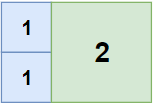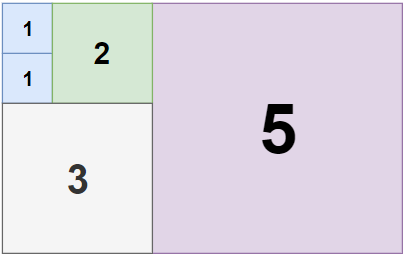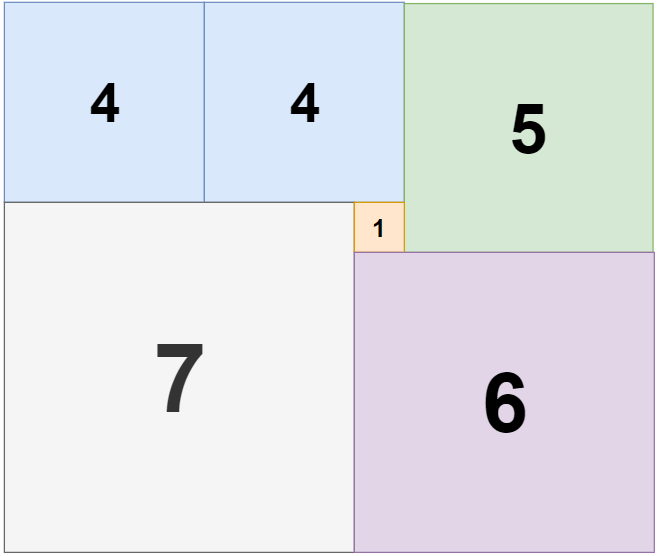Given a rectangle of size n x m, return the minimum number of integer-sided squares that tile the rectangle.
Example 1:
Input: n = 2, m = 3 Output: 3 Explanation:3squares are necessary to cover the rectangle.2(squares of1x1)1(square of2x2)
Example 2:
Input: n = 5, m = 8 Output: 5
Example 3:
Input: n = 11, m = 13 Output: 6
Constraints:
1 <= n, m <= 13
Companies:
Google
Related Topics:
Dynamic Programming, Backtracking
// OJ: https://leetcode.com/problems/tiling-a-rectangle-with-the-fewest-squares
// Author: github.com/lzl124631x
// Time: O()
// Space: O()
class Solution {
public:
int tilingRectangle(int n, int m) {
int ans = INT_MAX;
vector<vector<bool>> A(n, vector<bool>(m));
function<void(int)> dfs = [&](int cnt) {
if (cnt >= ans) return;
for (int i = 0; i < n; ++i) {
for (int j = 0; j < m; ++j) {
if (!A[i][j]) {
int len = 1;
for (; i + len <= n && j + len <= m && cnt + 1 < ans; ++len) {
int x = 0, y = 0;
for (; y < len && !A[i + len - 1][j + y]; ++y);
if (y < len) break;
for (; x < len && !A[i + x][j + len - 1]; ++x);
if (x < len) break;
for (int y = 0; y < len; ++y) A[i + len - 1][j + y] = true;
for (int x = 0; x < len; ++x) A[i + x][j + len - 1] = true;
dfs(cnt + 1);
}
for (int x = 0; x < len - 1; ++x) {
for (int y = 0; y < len - 1; ++y) {
A[i + x][j + y] = false;
}
}
return;
}
}
}
ans = min(ans, cnt);
};
dfs(0);
return ans;
}
};

